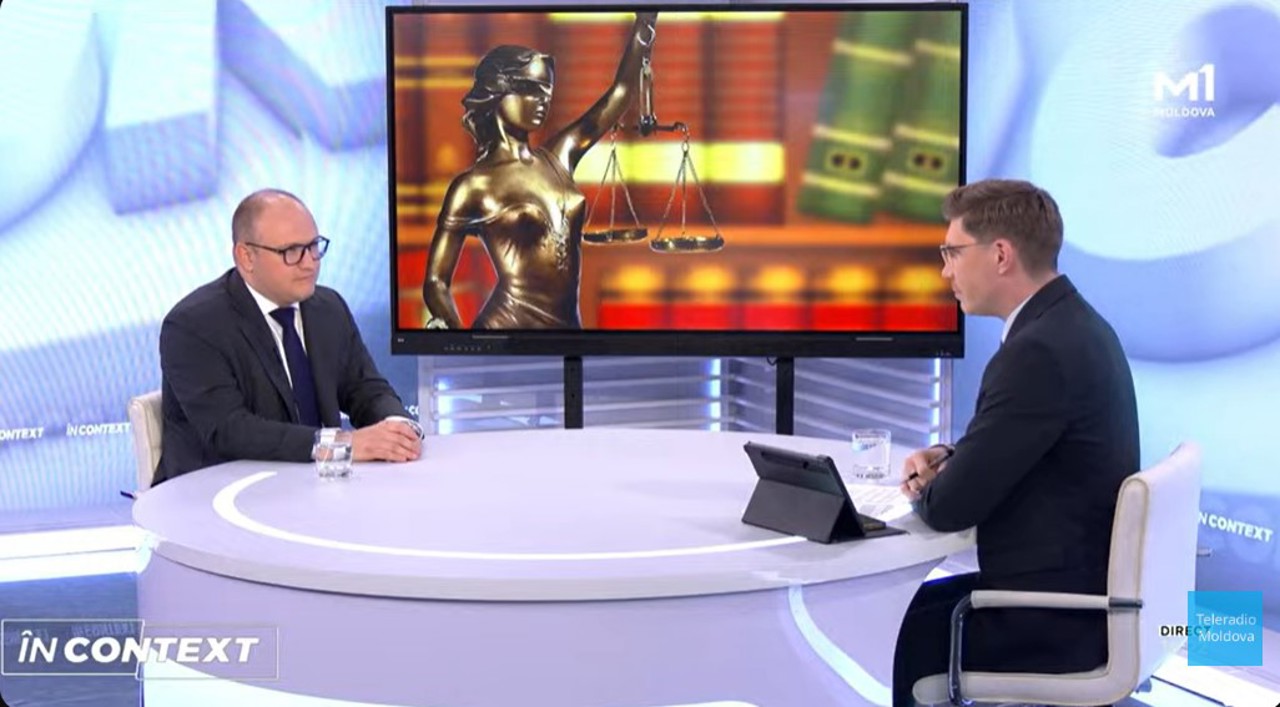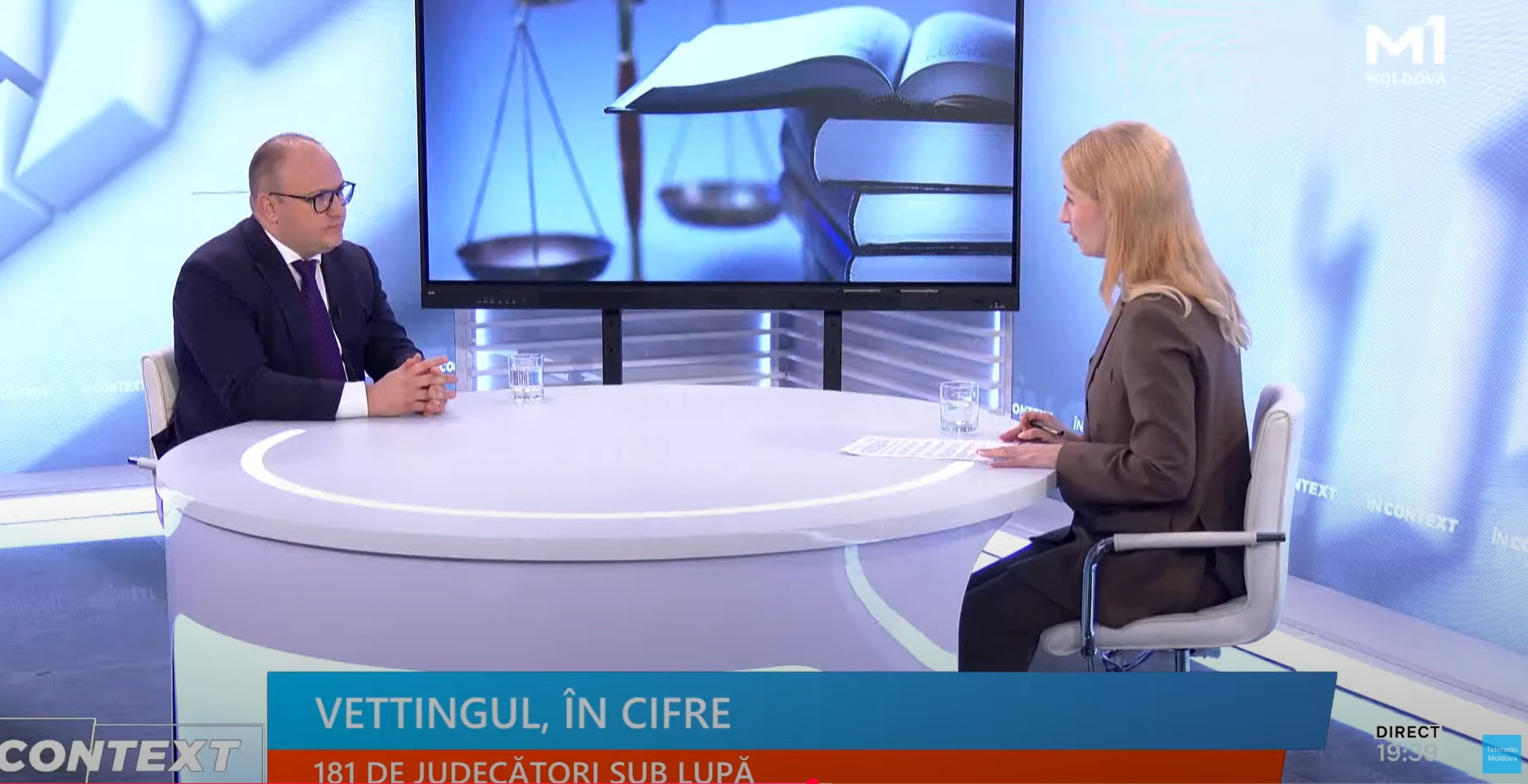Andrei Bivol: External evaluation is an essential part of the negotiation process for EU accession

Chairperson of the Judicial Vetting Commission, Andrei Bivol, explained in the Cutia Neagră PLUS studio on TV8 that the external evaluation process (vetting) is closely linked to the Republic of Moldova’s negotiations for accession to the European Union. According to him, progress in the vetting process directly influences the pace of opening and advancing the EU negotiation clusters, while the European Union, as a strategic partner, supports this process and has acknowledged the progress achieved so far by the Republic of Moldova.
In this context, filling the vacant positions at the Supreme Court of Justice and the Courts of Appeal remains a priority included in the EU accession plan. “We are conducting the vetting process, first and foremost, for ourselves as a society,” Andrei Bivol emphasized.
The discussion also touched on several aspects related to the differences between the integrity criteria set out in the three laws on vetting, the situation of the candidates for the Supreme Court of Justice who passed the evaluation but did not succeed in the professional examination conducted by the Superior Council of Magistracy (CSM), as well as the cases submitted to the Commission for reevaluation.
Among the topics discussed:
• 👥 The lack of candidates for vacant positions within the judiciary;
• ⚖️ Factors that discourage judges from applying for these positions;
• 🔍 Why some judges pass the integrity filter while others do not;
• ⏳ The estimated duration of the vetting process;
Despite the rigorous checks, Andrei Bivol noted that there can be no absolute guarantee regarding the future integrity of those who pass the evaluation.

.svg)





.webp)





